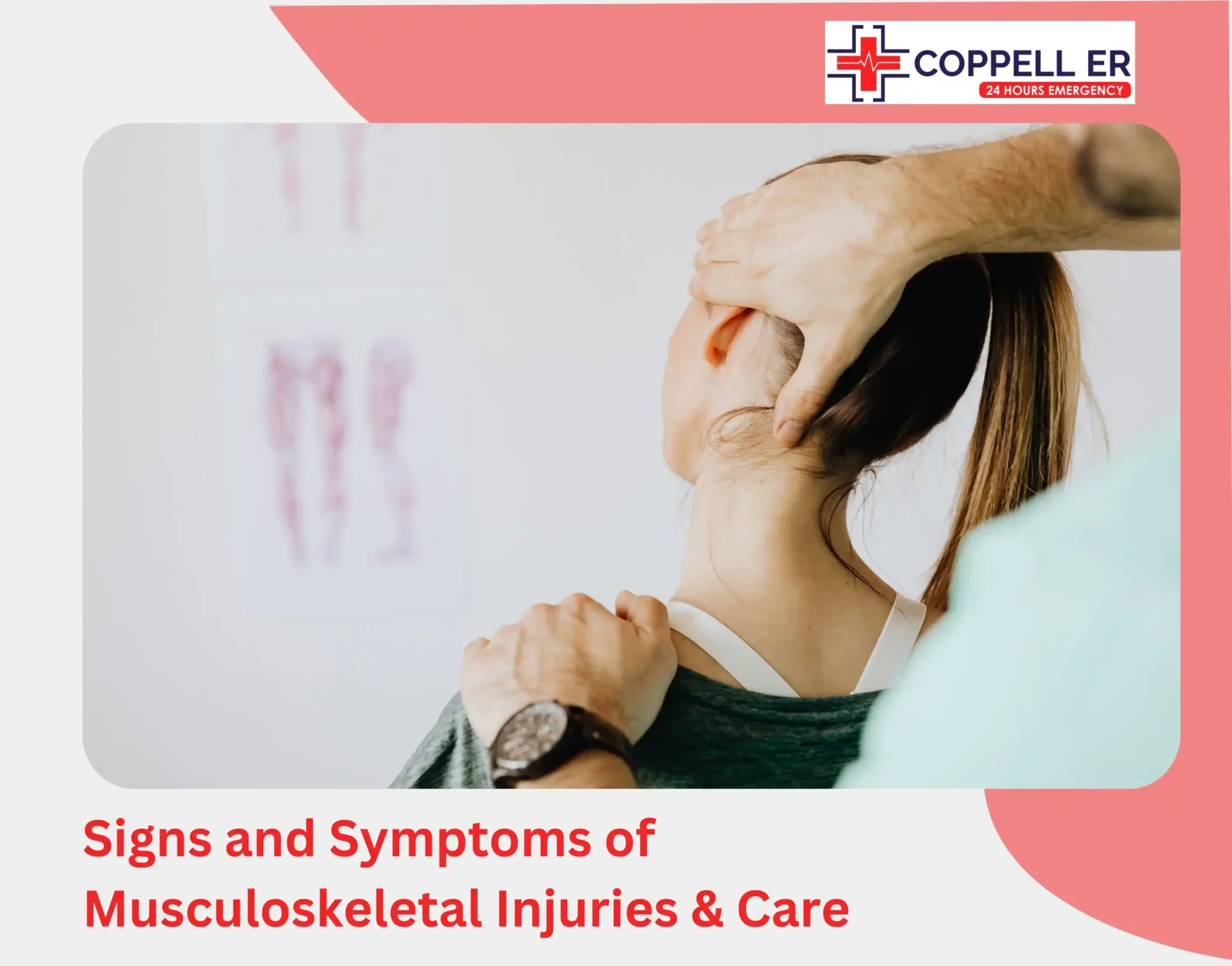7 Critical Facts About Musculoskeletal Injuries You Must Know – ER OF WATAUGA

Introduction
Whether it’s a sports injury, a slip and fall, or repetitive strain at work, musculoskeletal injuries can be painful, limiting, and sometimes long-term if not treated properly. At ER OF WATAUGA, our experienced physicians offer 24/7 emergency care tailored to your injury to help you get back on your feet quickly and safely.
What Are Musculoskeletal Injuries?
Musculoskeletal injuries refer to damage or trauma to the muscles, bones, joints, ligaments, and tendons. These structures are responsible for supporting your body and allowing movement. When injured, they can cause pain, swelling, bruising, stiffness, and reduced range of motion.
Common Types of Musculoskeletal Injuries:
-
Sprains and Strains – Ligament and muscle/tendon injuries, often from overuse or sudden movement.
-
Fractures – Broken bones caused by trauma or high-impact force.
-
Dislocations – Bones forced out of their joint positions.
-
Tendinitis – Inflammation of tendons from repetitive motion.
-
Bursitis – Inflammation of fluid-filled sacs around joints.
-
Contusions (Bruises) – Muscle trauma due to impact.
-
Overuse Injuries – Repetitive strain often related to sports or occupation.
Causes of Musculoskeletal Injuries
These injuries can occur suddenly or develop gradually over time. The most common causes include:
-
Sports activities
-
Car or motorcycle accidents
-
Falls and slips
-
Poor posture
-
Improper lifting techniques
-
Repetitive tasks at work
-
Sudden forceful impacts
Symptoms to Watch Out For
Identifying the symptoms early can help prevent further damage. Watch for:
-
Sharp or dull aching pain
-
Swelling or inflammation
-
Redness or bruising
-
Limited mobility or stiffness
-
Popping or grinding sensations
-
Weakness or fatigue in the muscle or joint
-
Numbness or tingling
If these symptoms are severe or persist, visit ER OF WATAUGA for a professional diagnosis and personalized care.
Diagnosing Musculoskeletal Injuries at ER OF WATAUGA
We use state-of-the-art diagnostic tools, including:
-
X-rays – For bone fractures and joint alignment
-
CT Scans – For detailed imaging of complex fractures
-
MRI Scans – To examine soft tissues like ligaments and tendons
-
Ultrasound – For real-time imaging of muscle tears
-
Physical Examination – Assessing movement, strength, and pain
Immediate Treatment Options
At ER OF WATAUGA, our emergency physicians provide comprehensive treatment, such as:
-
Immobilization – Using splints, casts, or braces
-
Pain Management – Medications, ice packs, or injections
-
RICE Method – Rest, Ice, Compression, Elevation
-
Joint Relocation – For dislocations
-
Wound Care – If the injury breaks the skin
-
Surgical Referral – If surgery is needed
Recovery and Rehabilitation
Recovery depends on the severity of the injury. Our care team may recommend:
-
Physical therapy – To restore strength and range of motion
-
Occupational therapy – To adapt to daily tasks
-
Home exercises – For consistent improvement
-
Follow-up evaluations – To monitor healing
Preventing Musculoskeletal Injuries
While some injuries are unavoidable, you can reduce your risk by:
-
Warming up before physical activities
-
Using proper techniques during lifting or workouts
-
Wearing supportive shoes and gear
-
Taking breaks during repetitive tasks
-
Maintaining good posture
-
Strength training and flexibility exercises
Why Choose ER OF WATAUGA for Musculoskeletal Injuries?
At ER OF WATAUGA, we offer:
-
No wait times – Immediate access to care
-
Board-certified physicians – Available 24/7
-
Advanced diagnostics – On-site imaging and labs
-
Comprehensive treatment – From minor injuries to severe trauma
-
Comfortable environment – Private exam rooms and patient-first approach
We prioritize your health and recovery, ensuring you receive accurate diagnosis, personalized treatment, and a smooth return to activity.
FAQs About Musculoskeletal Injuries
1. When should I visit the ER for a musculoskeletal injury?
Visit the ER if there’s severe pain, swelling, visible deformity, inability to move the joint, or signs of infection like fever or redness.
2. Can I treat a musculoskeletal injury at home?
Minor strains or sprains can be treated at home with the RICE method. However, serious injuries need professional medical attention.
3. How long does it take to heal from a musculoskeletal injury?
Recovery varies—from a few days for mild injuries to several months for fractures or surgeries. ER OF WATAUGA provides rehab plans to speed healing.
4. Are musculoskeletal injuries common in children?
Yes. Children are active and more prone to falls, making them susceptible to sprains, strains, and fractures.
5. What’s the difference between a sprain and a strain?
A sprain affects ligaments (bone to bone), while a strain affects muscles or tendons (muscle to bone).
Conclusion
Musculoskeletal injuries can impact your quality of life, work, and ability to move comfortably. Prompt treatment is essential to avoid long-term damage. Whether it’s a minor sprain or a serious fracture, ER OF WATAUGA is here to provide you with expert care around the clock. Don’t delay—trust our experienced medical team to help you recover safely and efficiently.
- Questions and Answers
- Opinion
- Motivational and Inspiring Story
- Technology
- Live and Let live
- Focus
- Geopolitics
- Military-Arms/Equipment
- Безопасность
- Economy
- Beasts of Nations
- Machine Tools-The “Mother Industry”
- Art
- Causes
- Crafts
- Dance
- Drinks
- Film/Movie
- Fitness
- Food
- Игры
- Gardening
- Health
- Главная
- Literature
- Music
- Networking
- Другое
- Party
- Religion
- Shopping
- Sports
- Theater
- Health and Wellness
- News
- Culture

